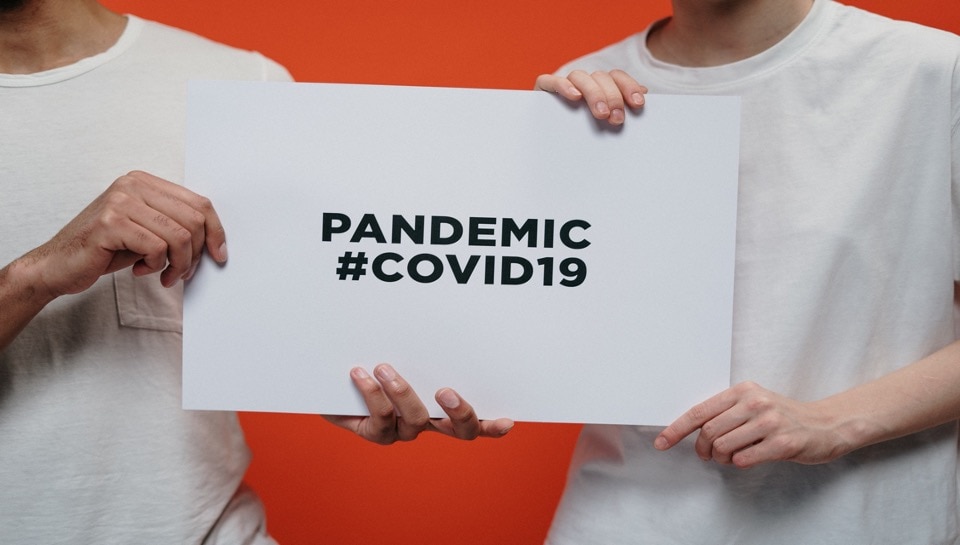THE COVID-19 PANDEMIC CAN BEST BE DESCRIBED AS A ‘WICKED PROBLEM’. THIS DEVASTATING CHALLENGE LEFT MANY ORGANISATIONS IN A STATE OF TURMOIL AS THEY SOUGHT TO FIND WAYS TO RAPIDLY REORGANIZE AND STAY FUNCTIONAL.
A wicked problem is defined as ‘wicked’ in the sense that it is ill-defined or tricky – rather being wicked in the sense of malicious. These problems are ill-defined as both the problem and the solution are unknown at the outset of the problem-solving exercise. This is as opposed to ‘tame’ or ‘well-defined’ problems where the problem is clear and the solution can be devised through technical knowledge.
COVID-19 was especially challenging as we had no clear model for how to deal with it. It was both complex and chaotic, unpredictable and unprecedented. Yet somehow organisations had to learn to how to manage the associated challenges in order to survive.
Only a proper understanding of the power of strategic creative and critical thinking processes in this specific context will enable us to fully address such a wicked problem.
Why is creative thinking for reinventing the office now more important than ever?
Many organisations are simply reacted to this crisis by sending people to work from home as if they will be able to function in exactly the same way as they did at work. Yet for many this approach is just is not effective over the long term.
The CEO of WordPress Matt Mullenweg has run a ‘distributed teams’ model for years. He refers to the approach most organization are resorting to as ‘Recreating the Office Online’, which he identifies is only level 2 of 5 levels of virtual team development. This ‘Recreating the Office Online’ approach is where employees have access to videoconferencing software (eg. Zoom), instant messaging software (eg. Slack) and email, but instead of redesigning the work to take advantage of the new medium, teams ultimately end up simply recreating their office experiences as online versions.
This can mean that many of the bad habits that permeate the modern office just get repeated and amplified. It can also suppress the ability of teams to actively engage in the thought processes.
Think of how many ten-person video calls are often now suggested when two people would have sufficed. How we can end up having up to 60+ interruptions a day — now also via Slack and phone calls and through the more sporadic checking of and responding to email constantly throughout the day. All this now demands an increasing hyper-responsiveness of all employees, “leaving them wired to desktop dings like Pavlov’s dog.” (Steve Glaveski).
Beyond tools to targeted strategies
Tools are only as good as how you use them. In fact, the misuse or abuse of tools can actually make a team less productive. CVTs will therefore need to learn to adapt to this new medium more deliberately and strategically if they want to be effective, which will require:
- Targeted creative and critical thinking strategies to start to address the difficult challenges and redesign working processes (with problems now exacerbated by the enforced need to work remotely due to COVID)
- Targeted communication strategies based on a clear understanding of the unique dynamics of remote virtual teams.
Taking such a clear strategic approach will help with adapting to the rapidly moving goalposts and somehow staying on track for success.
IMMEDIATE SOLUTIONS- see our above topics
- Who Killed Your Creativity? Self lead Audio learning playlist streaming package with leaders guide –
- Solving wicked problems interactive Zoom based workshop with the ability for a deep dive lab business facilitation strategic solving of real challenges –
- The Reality of Virtual Teams: interactive Zoom based workshop with experiential learning gamification –

Gaia Grant (PhD) is a lecturer and researcher at the University of Sydney Business School in the Discipline of Strategy, Innovation, and Entrepreneurship, focusing on research into innovation paradoxes and ambidextrous leadership. Gaia is also a Director of Tirian Innovative Solutions, & the co-author (with Andrew Grant) of a number of books including ‘The Innovation Race’, and “Who Killed Creativity?”.

Andrew Grant is the Director of Tirian Innovative Solutions, and co-author (with Dr Gaia Grant) of a number of books including ‘The Innovation Race’, and “Who Killed Creativity?”.


